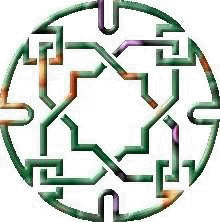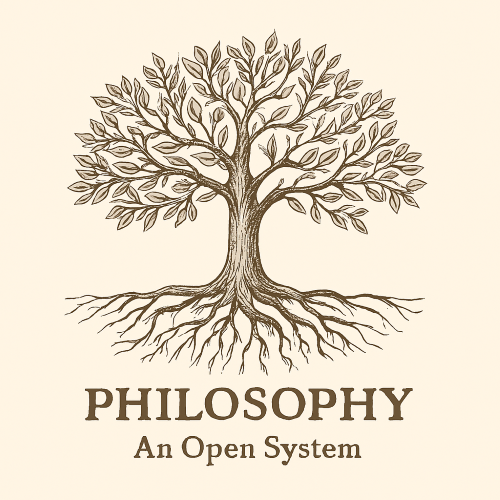

| Major World Philosophies |
| Philosophy in Major Culrures |
| World Philosophiccal Discourse |


Paul J. D’Ambrosio
Daniel Sarafinas
The general orientation of Anglophone academic philosophy is largely a narrowing of the world. It picks out something small and closes it from its connections to other things, including context, in order to achieve a more precise understanding of increasingly compartmentalized phenomena. Examining the world in this way means specifying things as isolated from others, downplaying the significance of circumstance and interconnectedness, and supposing that much of the world (including humans) can be known, predicted, and controlled. This mechanistic-reductionistic method is used in the sciences to simplify complex phenomena into their most basic components and minimize variables to precisely observe how they operate, often with great success. But academic philosophy does not need to model itself on the sciences - at least not in this regard - nor should it. Another way of doing philosophy moves in an opposite direction. It opens the world, recognizes the dynamic interactions of things as highly or completely interwoven, seeks out the importance of contextual variables, and is skeptical about the degree to which we can know, predict, and control the world (or ourselves). It seeks to treat different ways of reflecting on the world seriously and asks how we can build off of these foundations to think about ourselves, our relationships, and our world.
A more open type of philosophy is then not limited to a preoccupation with history, on comparisons between texts and traditions, or on narrow de-contextualized abstract arguments. For example, we can take open philosophy as meaning something like “reflecting on life” or “re-considering familiar thoughts and behaviors.” We would then understand some of our philosophical heroes, including Plato, Aristotle, Confucius, Mencius, the Zhuangzi and Laozi, not as proffering specific arguments about what is and is not the case, or what is right and what is wrong, but rather providing readers with examples of what they could consider, or how they might think, when reflecting on philosophical issues themselves. Understood in this way, to engage in philosophy means to learn from the style, orientation, and general approach provided in classics, and to then practice these approaches in our introspective contemplation, navigating relationships with others, or in our political commitments. The content is still important, but it need not necessarily be taken as either fixed in the historical past or universally applicable. What is argued by great philosophers might rather be taken as suggestions for ways of approaching problems, how we might consider different aspects of the world, and how to be open to various avenues for thinking and interacting.
Engaging in philosophy in this way opens the world by offering unfamiliar ways of reflecting on the world. When engaging with philosophical texts, one is presented not merely with new rules or calculations for how they should view the world, but is given a set of options to use when practicing philosophy for themselves. For example, Plato’s dialogues challenge one to think about what is essential to their concept of justice and how to assess what is just and unjust in the world, or how to balance duties to one’s parents and duties to the state. Reading the Analects and Mencius we find ways of considering our obligations to relatives and society along lines distinct from those suggested by Plato’s work. Additionally, these ancient Chinese classics explore ideas which are less prominent in Plato, such as the importance of hierarchical relationships and ritual. Rather than simply comparing the similarities and differences of the concepts explored by different thinkers, we can use the approaches employed by these thinkers interchangeably. Plato can serve as a guide to re-consider what is centrally constituent of those values we purport to uphold, for example, while the Analects might help us recognize how those values must be manifested very differently according to circumstantial contingencies. We can then decide what is the best method of deliberation, not based on a singular preestablished rule, principle, or calculation, but simply on what we determine as being appropriate given the demands of our situations. In this way philosophy opens the world in ever more ways.
Accordingly, the very approach to philosophizing itself becomes an open project, one that neither has nor claims to work towards a final end. We do not suppose we can figure out the world, but seek instead to find effective and productive ways to operate in the world as beings who are fundamentally constituted by it. Both philosophizing itself (methodologically) and the person who philosophizes, are taken to be part of the world with no recourse to something outside of it.
Philosophizing this way is a relatively humble and modest endeavor. It does not presuppose much knowledge about the world, but rather gives people tools in the form of philosophical approaches to problems, points out things they might want to consider, and does little else. If we emphasize dogmatic adherence to specific content and take philosophical texts as offering a fixed set of responses to problems, then, in its extreme at least, philosophy becomes a way of closing the world. The world becomes more narrow - only certain aspects of it count as significant and a potential world of multiplicity is assessed according to a limited set of abstract standards and modes of thinking. The more closed style of philosophizing assumes we can know and predict much about the world and focuses on doing just that. In this regard, it must be recognized that this narrow approach to philosophy can, in fact, be quite valuable and has been instrumental to varying degrees across all academic fields, including in the humanities. This article is intended merely as a reminder that philosophy can serve not only to refine but also to open dimensions of significance, broaden our methods of sense-making, and reveal healthier and more efficacious ways to engage with one another and the world.
Reading Aristotle in a more open way - the way the scholars mentioned above work with Aristotle’s approach to the world - we learn how to think about things, the world, and ourselves. Aristotle’s arguments about a specific type of good or a particular virtue are less important than his approach to these questions, what we can learn from how he thinks. Again, this is arguably what the contemporary Aristotelians mentioned above frequently do.
Writing about genetic engineering, Michael Sandel provides a prime example of what this type of philosophizing looks like. Sandel constructs an argument that is very much in line with Aristotle’s approach to problems, but he does not make assertions through references to quotes from Aristotle, nor does he purport to present “What Aristotle would say about genetic engineering.” In this way, when debating with other scholars the crux of the discussion does not revolve around interpretations of Aristotle, or on “What Aristotle would think about genetic engineering,” but rather “How we should think about genetic engineering.” One obvious benefit of this type of philosophizing is that it takes genetic engineering as the prime focus. The discussion is not about Aristotle, or even Aristotle and genetic engineering, it is about genetic engineering itself. Additionally, working in this way allows Sandel to engage in productive dialogue with people from different backgrounds. If someone has no knowledge of Aristotle, it is of little consequence in this type of discussion. Sandel does not assume prior knowledge of Aristotle, nor is he reciting passages from Aristotle. Sandel’s approach might be classified as Aristotelian, but the structure of his argument allows him to communicate with anyone within a relatively wide Anglophone community. As a result of de-coupling an Aristotelian philosophical approach from what Aristotle said about philosophy (content), the very premises utilized by an Aristotelian who practices this type of philosophy are open to criticism because Aristotle as philosophic authority is not the central part of the discussion. The pre-occupation with what a person or text said, what they really meant, and why it is good or bad is not particularly relevant according to this more open method, and we are left to consider whether that thinker’s fundamental approach is beneficial and conducive to discussing problems by testing that approach itself against contemporary real-world problems. (Opening Chinese Philosophy, p.10-13).
Reference:
Paul J. D’Ambrosio and Daniel Sarafinas. 2024. ‘Opening Chinese Philosophy’ Journal of World Philosophies, 9 (Winter): 1-19.